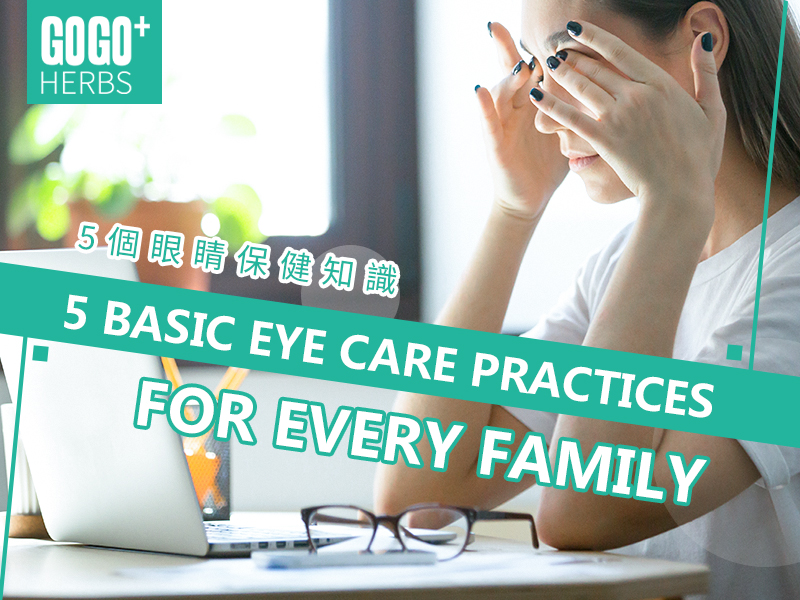
5 Basic Eye Care Practices for Every Family
Taking care of our collective sense organs is very imperative for our survival because we rely on our senses to learn, interact, and even protect ourselves. Eye care itself is an integral part of our cognitive system. Once the sense of sight is impaired in any way, it could have a negative impact on a person’s safety, health, and wellbeing. This is because, out of all the sense organs, the brain depends on the eyes to perform most of its quickest and accurate set of interpretations within an environment. To this end, visual health and acuity have become a priority, especially among infants and members of the older class.
More so, visual challenges can be discomforting, depressing, and limiting. Cases of critical visual impairment may affect not only the victim but also extended implications to their dependents, which they rely on for visual assistance.
In a bid to promote family welfare and minimize the risk of physical deconditioning, this article hopes to elaborate on basic eye care tips for optimum ocular health in the Family. Therefore, emphasized in this piece are core safety practices, nutritional strategies, and basic treatment procedures for common eye challenges. Below are some tips you should start practicing to keep a healthy eye.
1. Avoid Exposing the Eyes to Harmful Light Rays
Harmful light rays are everywhere; this includes the sun emitting harmful ultraviolet (UV) and our artificial low energy lighting system, also known as the “LED.” Nowadays, we live in a technologically enhanced world where almost all of our beloved gadgets are illuminated by light-emitting diode (LED).
Research has it that large amounts of blue light can be indisputably damaging to the retina. More so, spending long hours gazing or staring on our mobile electronic devices with LED-backlit screens exposes the eyes to short wavelength radiation –which may produce detriment effects due to prolonged exposure.
Another common condition in this regard is Computer vision syndrome (CVS). It is a condition caused by focusing the eyes at a computer screen or other display screen for prolonged uninterrupted periods of time. CVS is accompanied by various symptoms such as headaches, blurred vision , neck pain, eye strain, dry eyes, and even restlessness/lack of focus.
Avoiding contact with harmful light rays should be a top priority for persons with biological eye defects because their eyes may be more vulnerable to the potential risk of cumulative tissue damage. Consequently, they must observe all precautions and ensure their lenses are fortified to avoid further ocular tissue damage.
Pro Hints
- The International Commission on Non-ionizing Radiation Protection recommends (>10,000 seconds or about three hours) safe exposure limits to artificial light rays.
- Always make use of an Eye Protect System in a professional workspace eg, Welding Company.
- Ensure to get photochromic and anti-reflective lenses where necessary.
- Do don dazzle the eye. Minimize screen brightness and make use of Night light if needed.
- Invest in vision-enhancing nutrition
- Supplement your diet with natural supplements having good anti-inflammatory and a ntioxidant capacity .
2. Avoid Smoking For The Sake Of The Eyes.
Smoking cessation is an essential act of eye care. The eye is vulnerable to smoking-related trauma due to its proximity to the hot sensation of the burning cigarette and flying ash. Besides, Cigarette smoke contains lots of cancer-causing chemicals and carbon dioxide, which also suppresses oxygen production at the cellular level and inhibiting blood flow around the ocular region.
Most research also suggests that nicotine may adversely affect the availability of oxygen and tissue blood velocity in the optic nerve of habitual smokers. Many studies have also associated smoking to increased risk of age-related macular degeneration and cataracts. It is highly advisable to avoid smoking to the nearest minimum, especially when there is a pre-existing eye condition.
Pro Hint
- Abstinence is the absolute key; however, opt for electronic or e-cigarettes are a possible means of reducing tobacco consumption.

3. Avoid Eye Contact With Chemical Irritants.
Always take diligent steps at all times to avoid chemical contact with the eyes. If you work in a professional setting with an increased risk of chemical exposure, ensure you take training on how to handle these substances to prevent eye damage or trauma. Meanwhile, in the household, ensure you keep chemical products and inflammable out of the reach of children. This may include insecticides, refreshers, aerosols, and spray soaps. Their contact with the eye may result in mild conjunctivitis (Red red). It could also escalate to severe consequences such as blindness.
It would help if you were mindful of some other examples of harmful substances like varnishes, sodium hypochlorite, eugenol, hydrogen peroxide, and phosphoric acid.
4. Avoid Physical Trauma to the Eyes
This signifies one of the major risks of blindness, Hyphaema (Redeye), and blurred vision. Physical eye trauma can be caused by the introduction of foreign bodies to the eye. Ordinarily, the naked eyes exercise its protective mechanism through blink reflexes and eyelashes to prevent lurking dirt from getting into the eyes. However, physical eye trauma also occurs due to high-speed projectiles, which may leave the eyes with penetrating injury or pain on movement of both eyes around. Harmful particles include sand, pieces of amalgam, and broken bur fragments.
It is best for professionals and, most especially, subsistence farmers to wear protective eye goggles to avoid eye collusion with fast-flying particles. Children must also be cautioned to refrain from the use of dangerous acts such as the use of toy guns and sharp pointed objects.
Pro Hint
- In the case of penetrating injury, avoid the use of drugs containing aspirin or ibuprofen .
- Take sufficient bed rest for the blood to clear (Head should be maintained in an upright position while sleeping)
- A doctor may recommend Steroids to help with the inflammation.
5. Keep an Eye Out For Beneficial Eye Nutrition and Supplementation
You cannot underestimate the performance of an eye on nutrition. In developing countries, nutritional deficiency and cataracts are responsible as the major cause of blindness. In contrast, age-related macular degeneration (AMD) and cataracts are the leading causes in developed nations. There is clinical evidence that Nutrients such as lutein , zeaxanthin, vitamin C, vitamin E, zinc, copper, Omega-3 fatty acids , especially DHA, have been found to reduce the incidence of age-related macular degeneration (AMD) and retard the progression of consequent diseases.
Leveraging multivitamin supplementation is yet another way of ensuring that you have a sufficient supply of eye care, enhancing nutrients on a daily basis. Most product formulations in the market are usually a standard embodiment of high antioxidant and anti-inflammatory to help reduce the damage of free radicals and protect the eyes from continuous degradation.
Take Away
The eye signifies a very fragile and important part of the human body. Battling with any form of visual impairment can be challenging and threatening to one’s quality of living. Achieving optimum ocular health stays within the practice of safety precaution and investing in beneficial nutrition. To this end, older adults, infants, and persons with a biological eye defect are advised to embark on a strict multivitamin regimen.
Every family member has a role to play in achieving proper eye care. Infants must be supervised, cautioned, and educated against scenarios that may put the eye in danger. Lastly, note that matters and medications of eyes are not worth a gamble. In cases of doubt, please reach out to an optometrist or a primary care doctor for appropriate guidance.
Reference and Further Reading
- Rosenfield M. (2011) Computer vision syndrome: A review of ocular causes and potential treatments. Ophthalmic Physiol Opt. 31 (5), 502-155. Google Scholar
- McKinsey & Company. Lighting the way – Perspectives on the global lighting market. 2nd edition report. Aug 2012 Google Scholar
- Nutrition and Eye Health https://www.ncbi.nlm.nih.gov/pmc/articles/PMC6771137/ accessed 6 th September, 2020.
- An eye on nutrition: The role of vitamins, essential fatty acids, and antioxidants in age-related macular degeneration, dry eye syndrome, and cataract https://doi.org/10.1016/j.clindermatol.2015.11.009
Author: Michael F. O
Michael F.O is a ravenous health writer with over five years of experience. He has to himself a chain of certification ranging from a university degree in Biochemistry to other professional honors. Th...



































